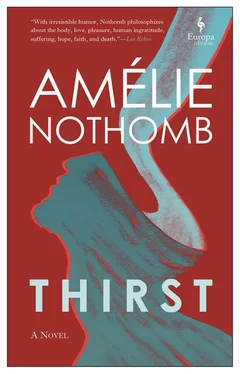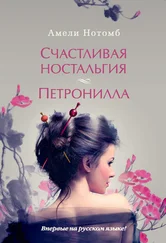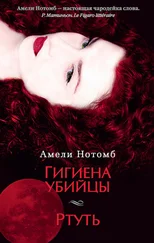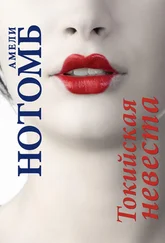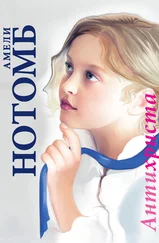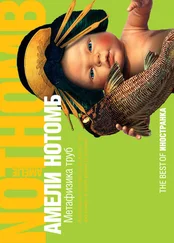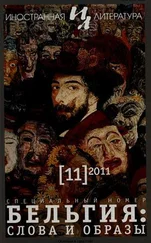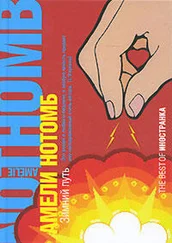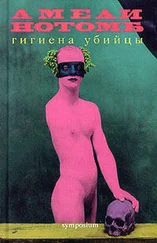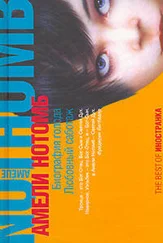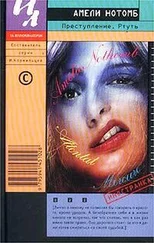I’m not being critical, drinking is a great delight. I’m just sorry that no one has explored the infinite nature of thirst, the purity of the impulse, the bitter nobility that is ours the moment we feel it.
John 4:14: “But whosoever drinketh of the water that I shall give him shall never thirst.” Why did my favorite disciple come out with such a misinterpretation? The love of God is water that never quenches. The more we drink, the greater our thirst. At last, a pleasure that does not diminish desire!
Try it for yourself. Whatever your physical or mental concern might be, combine it with true thirst. Your quest will be all the sharper, more precise, enhanced. I’m not saying never drink, I’m just suggesting waiting a moment. There is so much to explore in thirst.
The joy of drinking, to start with, which is never celebrated enough. People make fun of Epicurus’s words, “One glass of water and I die of pleasure.” How wrong we are!
Verily I say unto you, nailed to the cross though I be, a glass of water would make me die of pleasure. I rather suspect I won’t get one. I’m already proud that I can feel the desire, and glad to know that others besides me will experience the pleasure.
Obviously, no one imagined this scenario. There is no water on Mount Calvary. And even if there were, there would be no way of hoisting a cup up to my lips.
At the foot of the cross, I can hear a soldier telling his superior, “I have some water mixed with vinegar. Shall I give him some on a sponge?”
His superior allows him to do this, probably because he has no way of knowing how vital my request is. I shiver at the thought of feeling such a sensation one last time. I listen to the sound of the sponge soaking up the liquid: the sensual delight of it makes me weak with happiness. The soldier rams the sponge onto the tip of his spear and lifts it up to my mouth.
As exhausted as I am, I bite into the sponge and suck the juice. I’m elated. It is so good. That wonderful taste of vinegar. I suck at the sponge that is brimming with the sublime liquid, I drink, I am completely consumed by the delight of it. I don’t waste a single drop.
“I have some more,” says the soldier. “Shall I lift the sponge up to him again?”
His superior refuses, “That’s enough.”
Enough. What a terrible word! I say to you honestly: nothing is enough.
The superior has no greater grounds for refusing than he had for allowing. Command is a mysterious duty. I consider myself lucky to have been able to drink one last time, even if my thirst is far from quenched. I did what I set out to do.
The storm is about to break. People want me to die. I’m beginning to get fed up with this endless agony. I too would like to die quickly. It is not in my power to rush this demise.
The sky is torn asunder—thunder, lightning, downpour. The crowd scatters, dissatisfied, it’s just as well it was for free, because he didn’t even die, nothing happened.
I don’t have the strength to stick my tongue out to catch the rain, but it moistens my lips, and I feel the inexpressible joy of breathing in the best fragrance in the world one last time, a fragrance which some day will be known by the fine name of petrichor.
Madeleine is still there before me, my death will be perfect, it is raining, and my gaze encounters that of the woman I love.
The great moment has arrived. My suffering has vanished, my heart ceases to be clenched like a fist, and it receives a charge of love that surpasses everything, it’s beyond pleasure, everything opens out onto infinity, there are no limits to this feeling of deliverance, the flower of death opening again and again and spreading its corolla.
The adventure has begun. I don’t say, “My God, why hast thou forsaken me?” I thought of it, much earlier, but now I’m not thinking it, I’m not thinking anything, I have better things to do. My last words were, “I thirst.”
I am allowed to enter the other world without leaving anything behind. It is a departure without separation. I am not torn from Madeleine. I am taking her love with me to that place where everything is beginning.
At last, my ubiquity has meaning: I am both in my body and outside it. I am too attached to my body not to leave some of my presence in it: the excruciating pain I felt over these last hours was not the best way to inhabit it. I don’t feel amputated from my body; on the contrary, I feel as if I have regained some of its powers, such as access to the husk.
The soldier who gave me something to drink has seen that I am dead. He is a most discerning man: the difference is not obvious. He notifies his superior, who looks at me doubtfully. The moment amuses me: and if I were not completely dead, what would that change? Does this centurion have to believe in my magic to fear deception? Frankly, if I really wanted to resuscitate, I could not, for one simple reason: I’m exhausted. Dying is tiring.
The superior orders his soldier to pierce my heart with his spear. The unfortunate man is deeply upset, because he has grown fond of me: that spear whose sponge helped quench my thirst—he’s loath to use it now in order to wound me.
The superior gets annoyed, demands to be obeyed at once. They have to verify whether I am dead: execute! The soldier aims his spear at my heart, deliberately avoids it, as if he wanted to spare that organ, and pierces me just below it. I’m not that well versed in anatomy to determine where he struck me; I feel the blade of his weapon inside me, but it doesn’t hurt. A liquid flows out that is not blood.
Satisfied, the centurion announces:
“He is dead!”
The handful of individuals still standing below me walk away, heads lowered, both sorry and reassured. Most of them expected a miracle: the miracle did occur, although no one noticed. None of this was the least bit spectacular, it was an ordinary crucifixion; if there had not been a storm at the end, it really would have seemed as if the Eternal did not give a damn.
Madeleine runs to inform my mother:
“Your son suffers no more.”
They fall into each other’s arms. That part of me now flying above my body sees them and is moved.
Madeleine takes my mother’s hand and leads her to Mount Calvary. The centurion has ordered the soldier and two other men to remove me from the cross, which is lying on the ground. They are kind enough to pull the nails from my hands and feet before detaching me, so that they won’t be torn to shreds. I confess I am touched by their attentive gesture: I like my body, I don’t want it to be mistreated any more than it has been already.
My mother asks them to return my body to her, and no one questions her right to it. Now that the Romans no longer doubt that I am dead, it is amazing how nice they’ve become. Who would think these are the same men who brutalized me all morning long? They seem sincerely touched by this woman who has come to ask for her son’s remains.
I love this moment. My mother’s embrace is extremely gentle, and these are our last moments together, I can feel her caress, her love; mothers who have lost a child need its body, precisely so that the child will not be lost.
Though I hated seeing my mother after I first fell under the weight of the cross, now I love being in her arms one last time. She is not weeping, you’d almost think she can sense this well-being of mine, she says the sweetest things to me, my little boy, my baby bird, my little lamb, she places kisses on my brow and my cheeks, I am trembling with emotion, and, oddly enough, I know she can tell. She doesn’t seem sad; on the contrary. This thing they call my death has made her thirty-three years younger, how pretty she looks, my adolescent mother!
Dearest mother, what a privilege to be your son! A mother who has the gift of making her child know how much she loves him: that is absolute grace. I take in this headiness that is less common than you might think. I am swooning with pleasure.
Читать дальше
